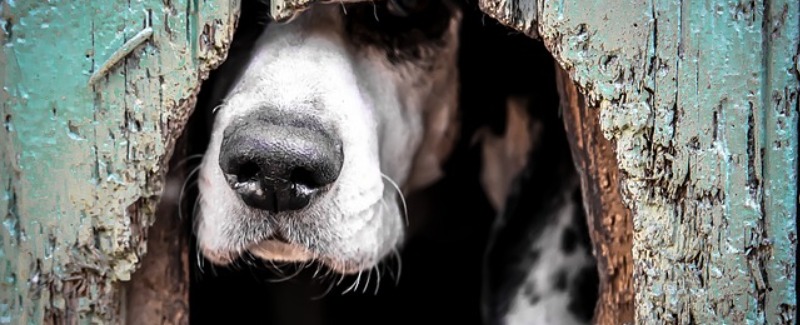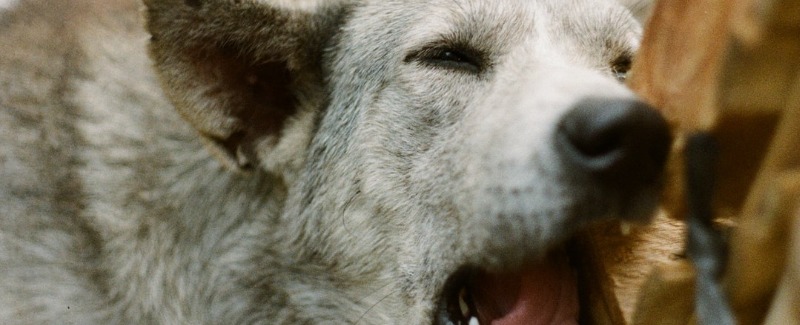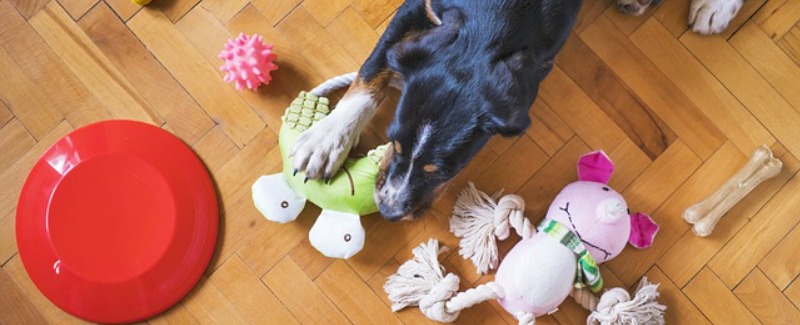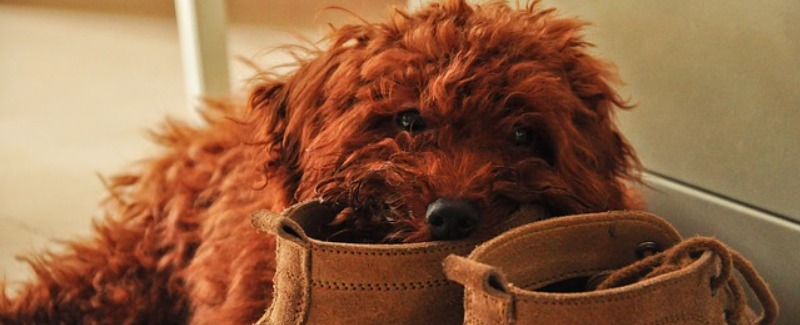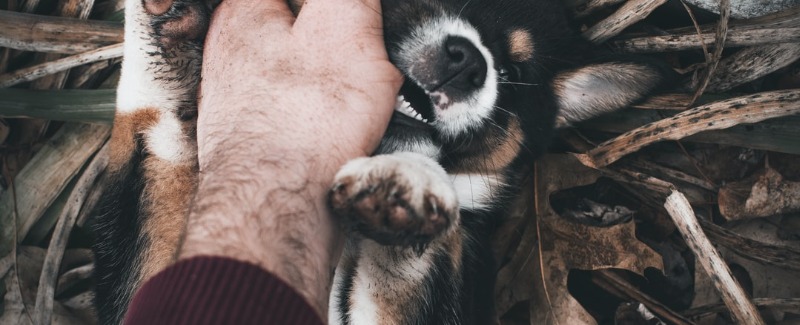Chewing fulfills multiple physical, mental, and emotional needs in your dog. He doesn’t just want to chew; he has to chew, and he will chew virtually anything in his path to satisfy his urge, even though what he chooses to chew on might be completely inexplicable to you.
Puppy Chewing
When they’re teething, and as part of their natural exploration, puppies spend much of their time picking up, mouthing, and chewing practically anything in their path. To keep your puppy from leaving a trail of destruction, there are several things you can do:
- Practice proactive management of both your puppy and the environment. Make sure your puppy doesn’t have unsupervised access to your valuable stuff, keep your stuff safely away from your puppy, or both.
- Keep attractive chewing items available to your puppy at all times.
- Tire your puppy out on a regular basis; sleeping puppies don’t chew.
- Interrupt and redirect your puppy to appropriate chewing items. It’s not enough to just tell her what’s not okay to chew and hope that she figures the rest out for herself.
Adolescent Chewing — Where the Real Damage Happens
Adolescence is the time when most destructive chewing takes place. Once your puppy is through the teething stage and all her adult teeth are in, the real chewing begins as she sets her teeth and strengthens her jaws for what would have been a lifetime of hunting and scavenging for survival. Just because your dog lives in a human household, where her food is delivered to her bowl with no jaw power required, doesn’t mean that the hard-wired need to keep the survival machine tuned up goes away.
On the contrary, she needs to have access to appropriate chewing items even more than a feral dog would because she’s not using her jaws in her daily survival activities. Also, because of the adolescent dog’s high energy level in comparison to other life stages, too little exercise generally leads to destructive chewing. All that energy has to go somewhere!
As always, management of your dog and the environment is crucial to your success in preventing property damage. Your dog will continue to chew to relieve boredom, frustration, and stress (and just because it feels good) for her entire life. If you can prevent bad chewing habits and establish good ones when she’s young, it is probable that she’ll never even consider chewing inappropriate items as an adult.

